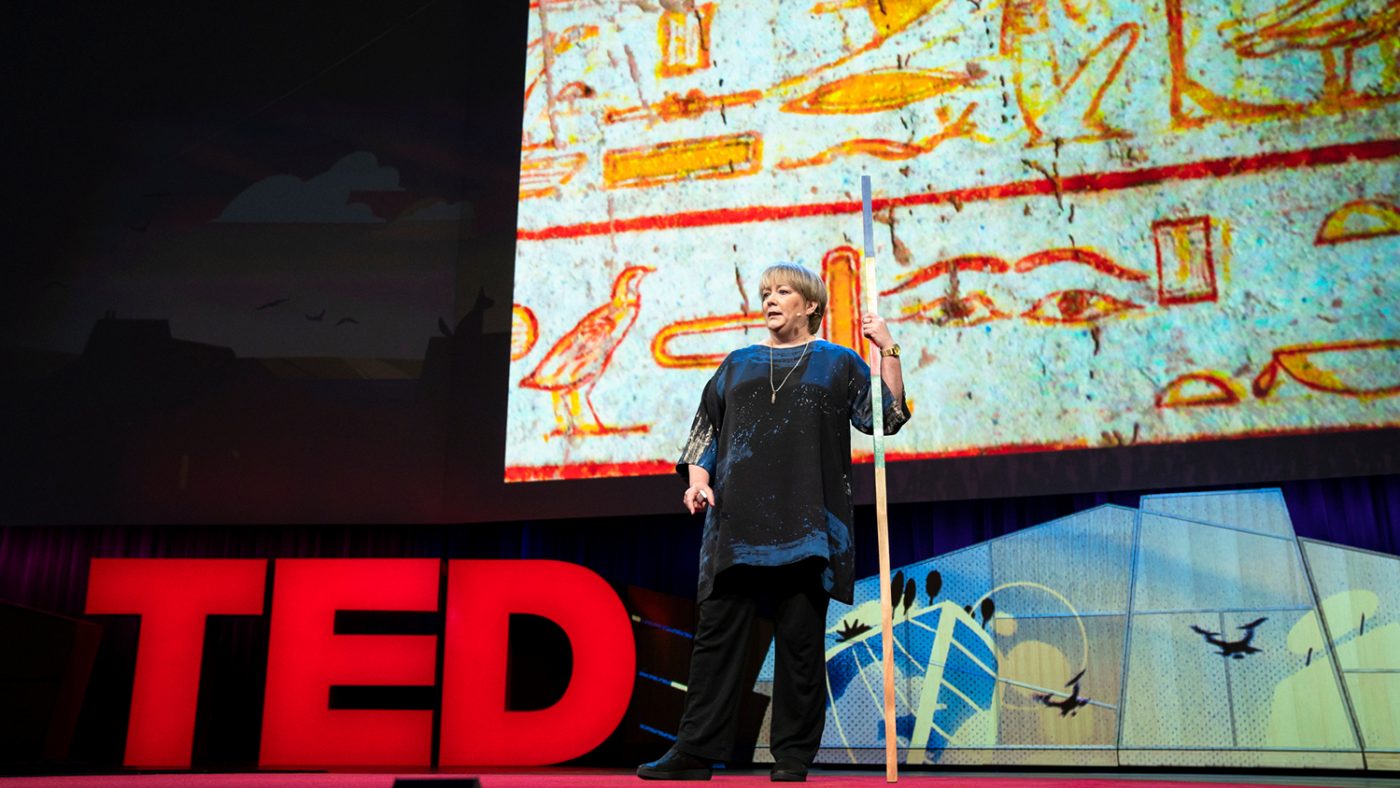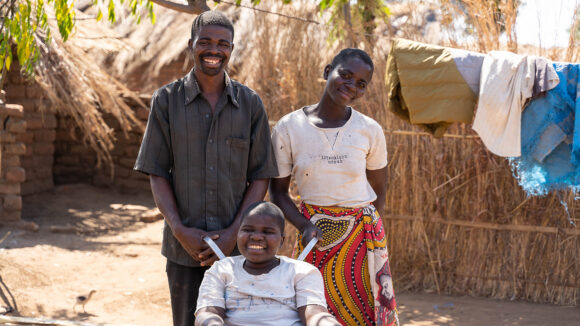
An ambitious TED Talk about eliminating the blinding eye disease trachoma, presented by Sightsavers’ CEO Caroline Harper, will be shared with global audiences today after being selected as ‘TED of the Day’.
Her talk will feature at the top of the main TED.com home page on 26 June.
Dr Harper was one of a group of experts chosen to speak at the TED conference in Vancouver in April, as she called on philanthropists to join the Audacious Project and free the world of the disease.
The Audacious Project aims to foster “collaborative philanthropy for bold ideas” by financially supporting projects that have the potential to create global change. Sightsavers’ plan to end trachoma has been selected as one of these ideas.
During her talk, Dr Harper explained how trachoma is still the world’s leading cause of infectious blindness and has a devastating impact on some of the most vulnerable people. Armed with a colourful dose pole and a pair of tweezers, she spoke about how the dose pole is used by volunteers in communities to measure the amount of medication to give people, and how the tweezers symbolise the many people who use them to pluck their eyelashes to free themselves from pain.
Dr Harper also praised the role of global collaboration in the battle to end trachoma, with ministries of health, communities, pharmaceutical companies, donors and international development organisations all working together.
TED has gained a global reputation for its free online talks, posted under the slogan ‘ideas worth spreading.’ It is named after its focus on technology, entertainment and design, but also encompasses science, business, the arts and global issues.
Watch the TED talk below and find out about our fight to eliminate the disease.
We’re so close to eliminating trachoma
Our work to fight the disease
Sightsavers responds to report into FCDO’s work on disability inclusion
A report on the UK government’s development strategy and how inclusive it is of people with disabilities was published on Thursday 4 April.

Sightsavers’ Accelerate programme gets US$36.5 million funding boost to banish trachoma
The extra funding from international donors will help speed up the elimination of trachoma in Africa by expanding and extending the programme.

Sightsavers at the CIES education conference 2024
We're attending the conference in Miami on 6-14 March to share our expertise, engage with the education community and explore how we can transform inclusive education.